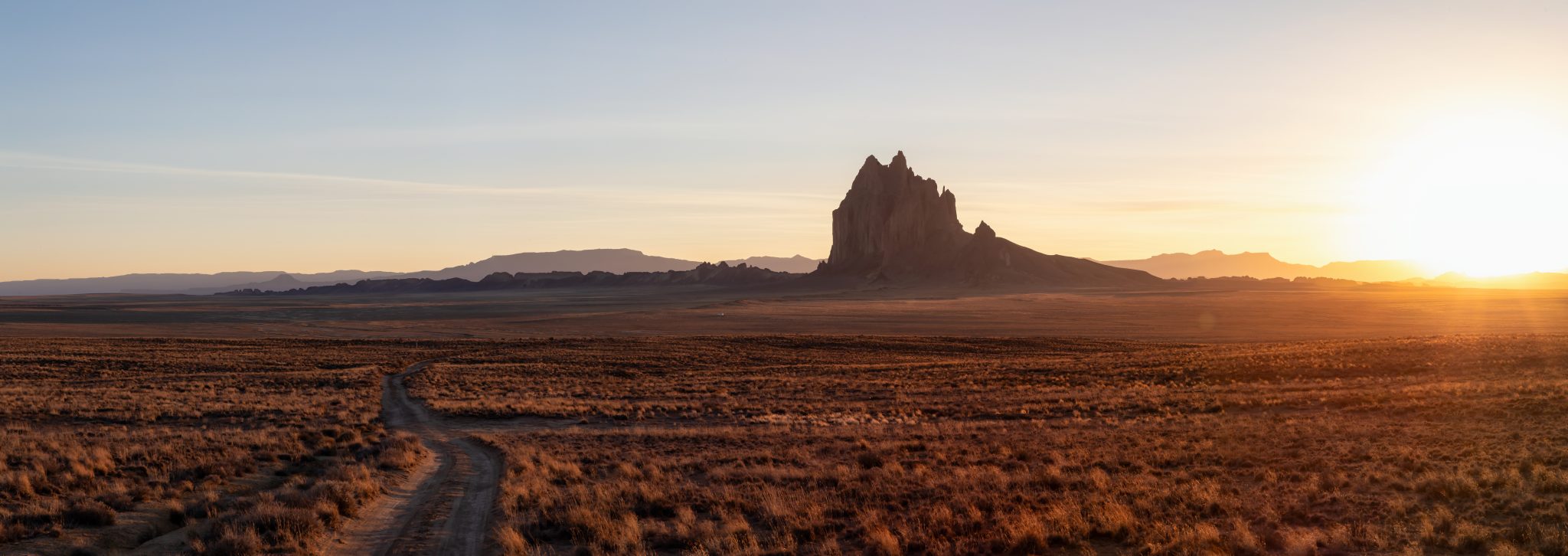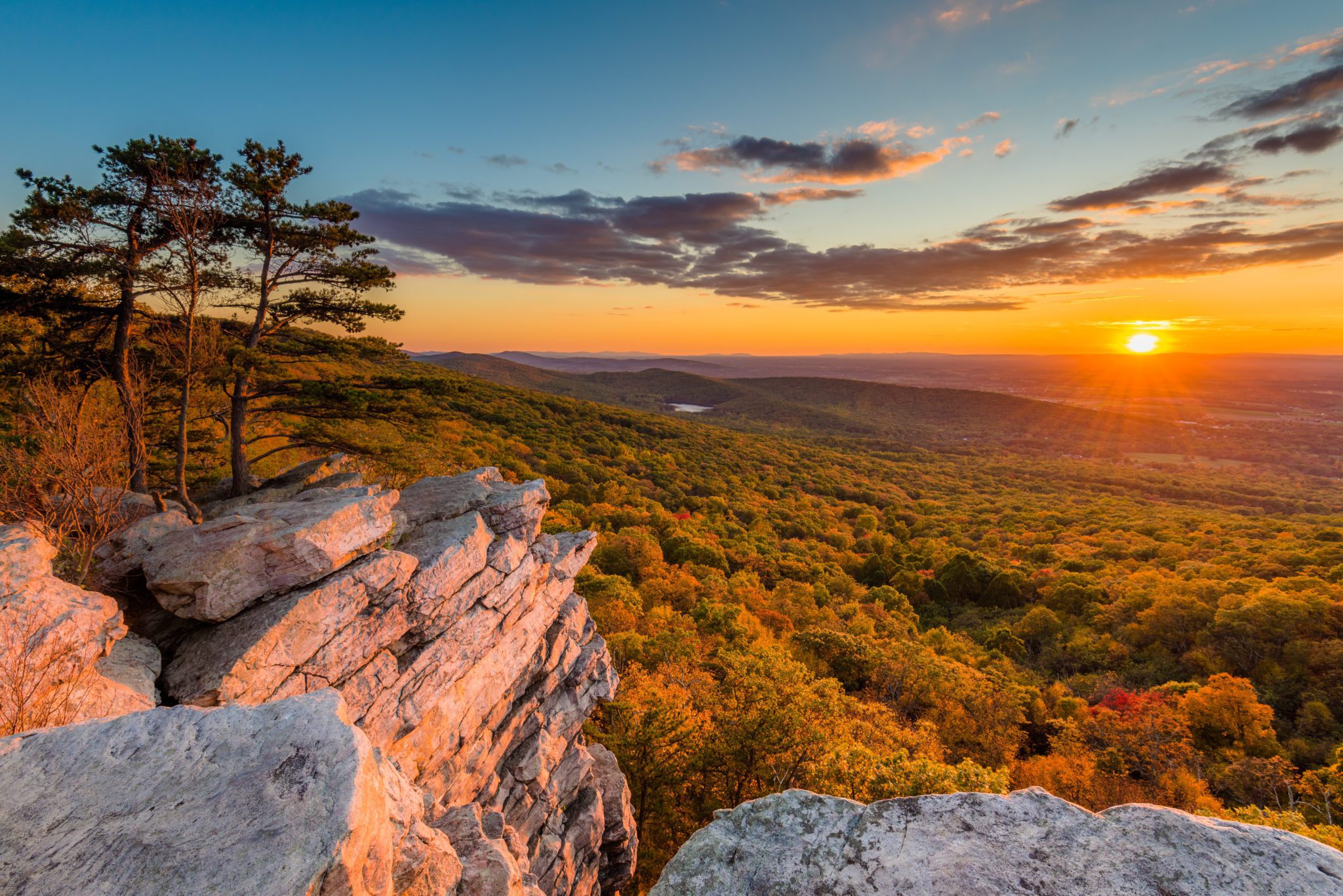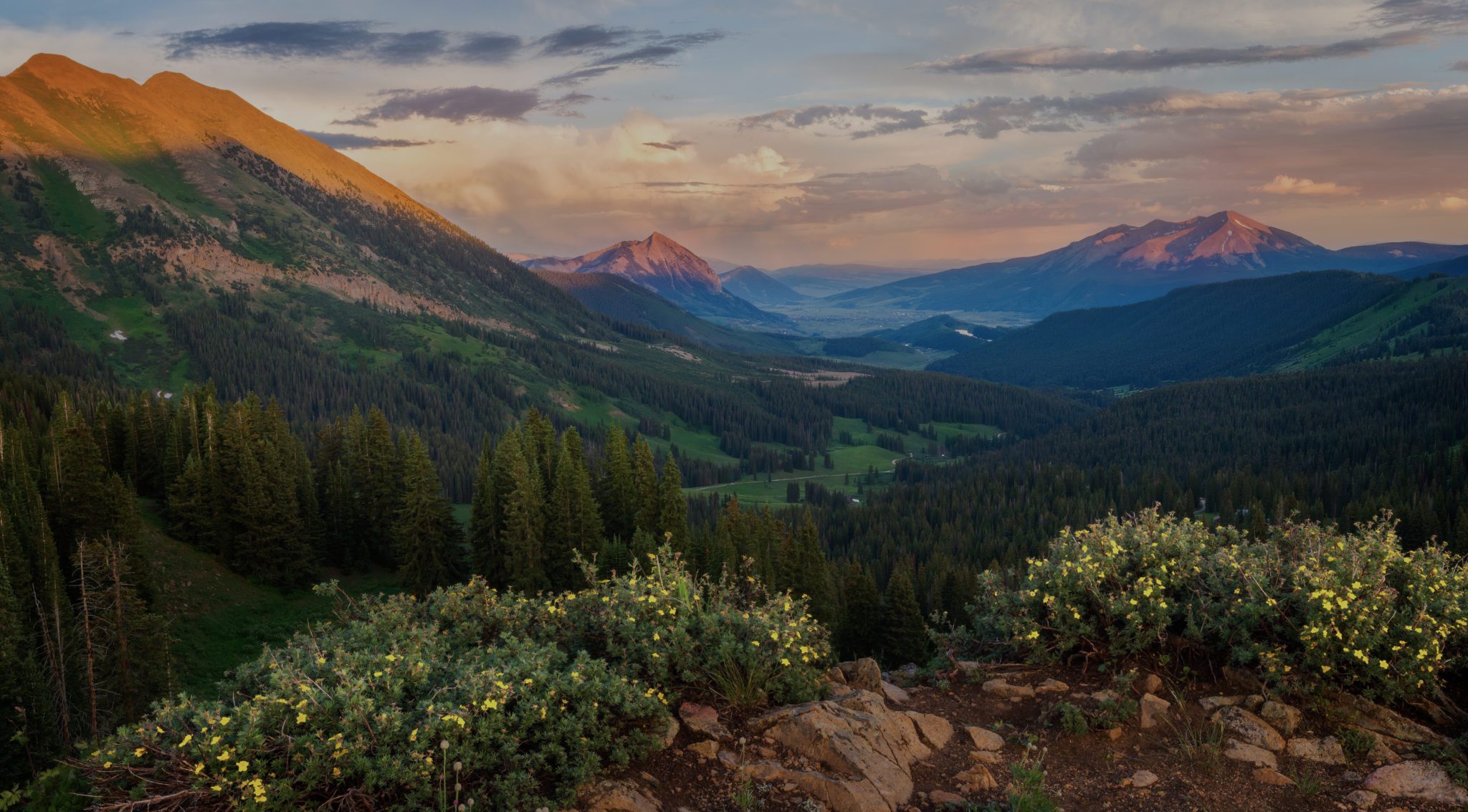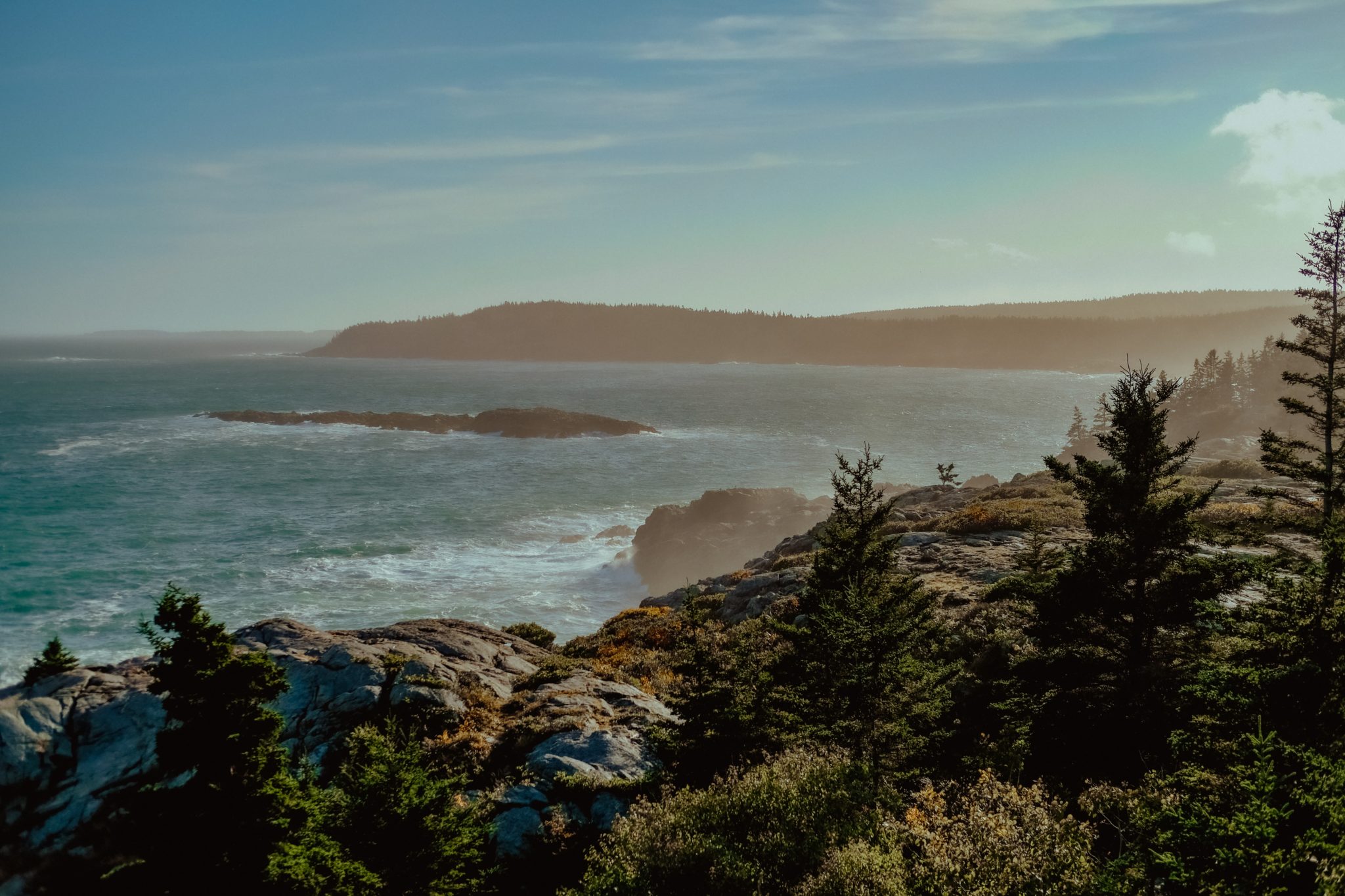Welcome to the State & Local Dispatch, a quarterly newsletter with key state-level updates that impact our industry and communities.
Continue readingThe Great Maryland Outdoors Act: A win for MD’s outdoors, community, and economy
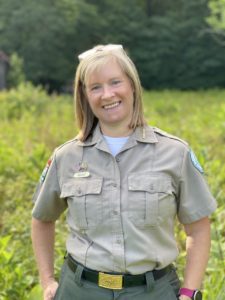

As 2022 state legislative sessions wrap up and we reflect on major policy wins across the U.S., The Great Maryland Outdoors Act is a clear standout. OIA staff connected with Daryl Anthony, executive director of the Maryland Office of Outdoor Recreation, and western region manager Christy Bright at the Maryland Park Service, to learn more about the positive impacts this bill will have on Maryland’s outdoors, its citizens, and the state’s outdoor economy.
Like many other states, Maryland’s park system saw a marked increase in traffic across its 77 units throughout the pandemic. Much of the increase in visitation was experienced in regions most accessible to nearby major metropolitan areas and in neighboring states. Alongside increased traffic came escalated stress on the resources of the Maryland Park Service. Equity and access concerns for underserved communities also became a greater priority. These conditions sparked discussion on how to address these new challenges. The result? The Great Maryland Outdoors Act.
This act is an instructional example of collaboration between bipartisan lawmakers, state institutions, and other stakeholders working together to understand the needs of the Maryland Park Service, the Department of Natural Resources (DNR), and their employees. According to Executive Director Anthony, the Great Maryland Outdoors Act is “geared toward advancing operations and capability of the Maryland Park Service.” These targeted investments will address specific resource shortages and will enhance the capacity of the DNR and its departments.
Here are some of the components of the act:
- The act increases the number of permanent employees in the Department of Natural Resources, which will add institutional capacity to address challenges affiliated with increased visitation, safety, and aging infrastructure.
- The state’s Critical Maintenance Fund will receive an additional $70 million to address state park maintenance needs. These funds and the work they enable should positively impact the outdoor recreation industry across the state by updating infrastructure in and around recreation amenities.
- The Park System Capital Improvement and Acquisition Fund established in the act will allow the state to acquire additional land for state parks. Further development of outdoor amenities will alleviate overcrowding and access issues. Part of the funding allotted in the fund must also go toward climate change mitigation infrastructure projects.
- The act also establishes a Parks and Recreation Commission, which will oversee the Maryland Park Service. The commission will have representation from the legislature, appointees from the executive branch, Maryland citizens, and members specifically focused on environmental justice and sustainable communities.
- The creation of the $3 million Great Maryland Outdoors Fund directly applies to Maryland’s Office of Outdoor Recreation. The fund will be used to implement recommendations from the Maryland Outdoor Recreation Economic Commission. The monies may also be applied toward department projects and programs that “provide, promote, and enhance outdoor recreation opportunities in the State.” Some funding is also allotted to the marketing and promotion of state parks.
- Finally, the Great Maryland Outdoors Act establishes that the DNR work with the state’s Department of Labor to identify opportunities to create registered apprenticeship programs “to help address workforce shortages and the career workforce needs of DNR.”
These sizable investments will result in a triple-bottom-line return for the state by imparting direct positive impacts on the health and wellness of the state’s citizens and the health of the environment, and they will enable further development of an outdoor recreation economy that already provides Maryland $5.5 billion in value-added to the state’s economy annually while supplying approximately 69,337 jobs for residents. Executive Director Anthony noted that the act reflected a host of favorable conditions developing in the right place at the right time, including a partnership with the state’s executive branch. “Governor Hogan recognizes the value of outdoor recreation and the need to have this opportunity available for the citizens of Maryland for their overall quality of life,” said Anthony.
After this significant policy victory, what’s next? Both Executive Director Anthony and Western Region Manager Bright say there are other needs and opportunities they will be focused on: growing public and private investment in green technologies to improve access, updating recreation amenities like campgrounds, and further improving the user experience. Finally, Bright points out that the vitality of the outdoor economy and Marylanders themselves rely on the health of the natural assets across the state. Traditional conservation efforts are still front-of-mind for the DNR, including a continued focus on the protection of the Chesapeake Bay.
We at OIA are big fans of the Great Maryland Outdoors Act. State parks across the country are chronically underfunded even while seeing notable traffic increases. Our industry can utilize our collective voice to address this issue over the coming years.
Ready to learn how you can advocate on behalf of increased investment in parks, green infrastructure, and recreation amenities? Contact Rebecca Gillis, OIA’s State and Local Government Affairs Manager, to learn more about the tools OIA offers to our members to step up and call on elected officials to strengthen the outdoors and outdoor economy.
Advocating on Earth Day: State and Local Policy Updates
On this Earth Day, we on the OIA Government Affairs team are reflecting on notable state-level policies, regulatory changes, and investments that are accelerating important progress on climate, conservation, education, and outdoor access. To celebrate, we want to share some of these significant highlights with you in hopes that it inspires our members and fellow outdoorists to continue advocating for impactful policy on our planet’s behalf.
MICHIGAN
In late March of 2022, Michigan Governor Gretchen Whitmer celebrated the Building Michigan Together Plan. The $5 billion bipartisan plan is a blueprint for major investments to improve and modernize the state’s infrastructure.
The plan will have major implications throughout the state. We were excited to see that the governor outlined a planned $450 million investment in state parks. Of the total, $250 million will be allocated to state parks, including the development of a new state park in Flint, MI. An additional $200 million will go toward improving and developing local park systems throughout the state. Governor Whitmer’s administration noted that these investments will benefit the state’s outdoor recreation industry and will attract increased tourism to Michigan. Click here to learn more about these important investments.
CALIFORNIA
Late last year, California Governor Gavin Newsom’s administration made some exciting announcements to kick off 2022. Alongside California Secretary for Natural Resources Wade Crowfoot, the governor outlined $548.3 million in state grant funding to develop new parks in more than 100 communities throughout California. The press conference was part of a kick-off for the California “Outdoors for All” initiative, which will be led by Katherine Toy, the new and first-ever Deputy Secretary for Access at CNRA. US Secretary of the Department of the Interior, Deb Haaland, joined attendees for the launch of the initiative.
Learn more about the California Outdoors for All initiative and the catalytic investments here.
MARYLAND
In March 2022, the Maryland General Assembly passed the Great Maryland Outdoors Act (MD SB541). The bill was written partially in response to increasing visitor use seen throughout the pandemic, as well as growing need for resources to address deferred maintenance throughout the state. The legislation will provide increased funding for the state’s park system, the creation of new parks, and better access to existing parks.
The Great Maryland Outdoors Act will play a major role in, “addressing infrastructure, capacity, and accessibility needs within the Maryland Park Service and State parks,” and “increasing the number of Maryland Park Service full-time employees,” and finally, requiring the state’s Department of Natural Resources to make considerations “relating to the accessibility, inclusivity, safety, and location of State parks.” The law also establishes the Great Maryland Outdoors Fund to provide funding related to outdoor recreation in the state.
Read the final version of the bipartisan bill here.
WASHINGTON
Washington recently saw the creation of a statewide outdoor school program via a bipartisan bill, Establishing the outdoor school for all program (WA HB 2078). Ten million dollars in funding allocated from the state’s general fund will be used to administer an outdoor learning grant program supporting outdoor educational experiences throughout the state’s public schools. Washington youth in the fifth and sixth grades will be able to attend outdoor school starting as soon as the 2022-2023 academic year.
The program will be administered by the state’s Office of the Superintendent of Public Instruction. The office will allocate grants to eligible school districts and outdoor school providers, and will also partner with other relevant state agencies to carry out implementation.
Governor Jay Inslee said, “This is an important opportunity for our kids to experience quality instructional time outdoors, and it may even inspire them to pursue exciting careers in earth science and land management, which will help prepare our state for the challenges of climate change.”
Interested in learning more about our government affairs work on the state and local level? Read more here.
The Outdoors Should Be for All, Regardless of ZIP Code
Together, we can demand greater accessibility to the natural world for all and help more people to get outdoors — because everyone deserves a breath of fresh air.
Continue readingBlack Conservationists, Environmentalists and Outdoor Advocates Who Changed History
February is Black History Month! Join us in celebrating some of the Black environmentalists, advocates and thought-leaders who have championed work to protect our public lands and increase equity and access in the outdoors.
Continue readingOutdoor Retailer Industry Lunch: Historic Investments In Climate Change, New Opportunities For Environmental Justice
With continued discussion of the Build Back Better plan in Congress, policymakers are responding to the outdoor industry’s call to make historic investments to combat climate change, which is a major existential threat to the outdoors, our communities, and the outdoor recreation economy. These proposed funds are committed to build resilience, promote natural climate solutions, support a Civilian Climate Corps, and accelerate the transition to renewable energy. It is imperative that the passage and eventual implementation of Build Back Better also addresses two other related threats to our industry: the disproportionate impact climate change has on minority and marginalized communities and the need to ensure that the outdoors are open, safe and accessible to all Americans. Join us for an informative discussion with key stakeholders, industry leaders, and representatives from Washington, D.C., on how combating climate change, prioritizing climate action, and ensuring more diversity, equity, and inclusion in the outdoors are intertwined and how you and your business can play a key role in the future of an equitable and healthy outdoors.
Moderator: Rebecca Gillis, State & Local Government Affairs Manager, Outdoor Industry Association
Panelists:
Congresswoman Nanette Barragán, U.S. Representative for California’s 44th congressional district
Clarence Edwards, Legislative Director, Sustainable Energy and Environment, Friends Committee on National Legislation
Angelo Villagomez, Senior Fellow, Center for American Progress
Taishya Adams, National Policy and Education Director, Outdoor Afro
Takeaways from the session include:
- There is intersectionality between investments in climate sustainability and the potential follow-on impacts on environmental justice and outdoor accessibility across the nation. These topics are intertwined with broader conversations about equity in the outdoors, and amongst outdoor industry stakeholders.
- Other current policy options and efforts in the Biden Administration to further invest in pivotal environmental justice issues include the bipartisan infrastructure law and the Justice40 initiative. The proposed Civilian Climate Corps has a potential role to play in not only on-the-ground conservation and climate mitigation work, but also localized efforts to build out more accessible green space for individuals in nature-starved areas – paving the way for increased equity in the outdoors.
- Storytelling across diverse communities is an important mechanism for increasing effective advocacy for climate investments.
- While sometimes daunting, it is critical to talk about climate impacts, environmental justice, and outdoor accessibility to audiences who may have been intimidated or felt unmotivated about climate action and equity.
Outdoor Retailer Education Session: Ask OIA Anything On Trade
OIA’s international trade program is dedicated to promoting a stable and predictable trade environment for outdoor businesses of all sizes, from domestic manufacturers to those that utilize global value chains to bring product to market. Members of OIA’s Trade Advisory Council (OIATAC) meet regularly to provide advice and guidance on new initiatives to help the bottom line of outdoor companies and to collaborate and exchange new ideas and best practices as they navigate tariffs, supply-chain disruptions, shipping costs and other challenges to their businesses. Watch our presentation from Outdoor Retailer Snow Show 2022 to learn from OIA’s outside trade counsels from Sorini Samet & Associates and members of OIATAC on the latest federal trade updates, challenges to outdoor supply chains and how OIA members are responding.
Moderator: Richard W. Harper, Jr., Director of Government Affairs, Outdoor Industry Association
Panelists:
Ron Sorini, Principal, Sorini, Samet & Associates, LLC
Ben Christensen, Vice President of Operations, Simms Fishing Products
Sara Bowersox, Senior Manager of Global Trade Compliance, Keen Footwear
Takeaways from the session include:
- There is broad, bi-partisan support for getting even tougher on China with regard to trade. Punitive tariffs are likely to remain in place for some time.
- While Congress and the administration focused on domestic priorities in 2021, there’s a chance we’ll see movement on some outstanding trade items early in 2022, like renewing the Generalized System of Preferences (GSP) and a package of miscellaneous tariff bills.
- Outdoor companies are dealing with unprecedented challenges in bringing products to market, from high freight costs to congestion at US ports. Work on addressing these issues has gone up considerably. Some have found success in broadening partners in freight and logistics, adding more options.
- Looking at the year ahead, outdoor companies are looking for any opportunity to help with their bottom line, from leveraging any duty savings, streamlining supply chains to developing multiple vendor relationships.
Audio Outdoorist: Maine Senator Angus King and L.L.Bean Executive Chairman Shawn Gorman
In today’s episode, OIA government affairs director Rich Harper speaks with King and OIA Government Affairs Committee Chair and L.L.Bean Executive Chairman Shawn Gorman about why they support federal investments in national, state and local parks as means for driving sustainable economic growth, and they discuss how government and outdoor businesses can work together to pass equitable climate-smart legislation like the Outdoors For All Act to ensure our planet, its people and the outdoor industry continue to thrive.




